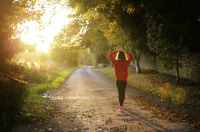December is a busy month for everyone. Often, we find it hard to go into rest mode and stop doing our tasks. What can we do to take a break and get into a more relaxed routine?
First, you need to give yourself the “permission” to rest. We are often hindered by the thought that we “must” do something. It’s important to understand that resting isn’t about being lazy; it’s actually helping yourself now so that you can be more productive in the future. It sometimes happens that when we work hard without taking a break for a long time, we get ill and spend our vacations or weekends recovering instead of actually resting. So, if you don’t help yourself to relax now, your body will force you to do it eventually. To avoid this happening all of a sudden, it’s much better to let yourself rest timely.
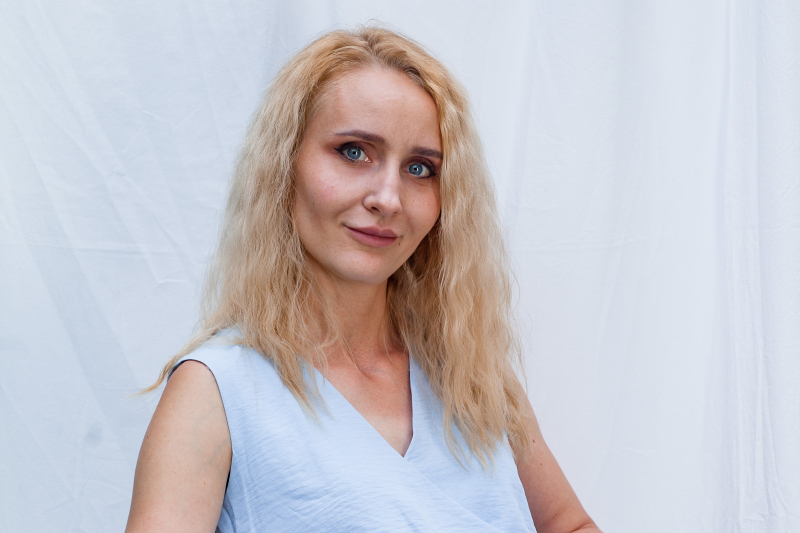
Anna Nikolayeva. Photo courtesy of the subject
We are used to planning our tasks. Should we plan our rest, too?
Yes, it’s an important thing to do because we tend to forget about it and find more important things to do. You can book resting time in your daily schedule, for instance: “Work until 6 pm, rest from 6 to 9 pm.”
Moreover, you have to understand what it means to rest. This is not when you do your errands around the house – cooking, dusting, or doing laundry. Resting is usually something that helps us relax. Try to find out what does this for you and include such activities in your schedule.
How do I know that a certain type of rest is the most efficient for me?
You can only discover it by trying them all. Plan different activities throughout the week: on Tuesday and Thursday, you exercise, on Saturday – hang out with your friends, and on Sunday – go somewhere new. Try different things and see what brings you the most joy.
You should also take into account the level of energy you need for various activities. For instance, some people need to see their friends five times a week, while for some just one meeting is enough. Experiment with finding the right combination of various types of rest.
Is there some universal solution for cases when you need to relax your body and mind ASAP?
In such situations, you can turn to anxiety-oriented practices. For instance, breathing exercises. A popular one is box breathing, which is when you breathe in, hold in your breath, breathe out, and hold your breath again – counting to four at each step.
There is also a popular five-step grounding practice, where you pay attention to:
- five things you see;
- four things that you can touch;
- three sounds that you hear;
- two objects that you can smell;
- one thing that you can taste.
Finally, walking is actually a type of rest that is universally effective: it involves physical activity and turns your attention to the things you see around yourself. Another thing that can help is taking a warm bath or shower.
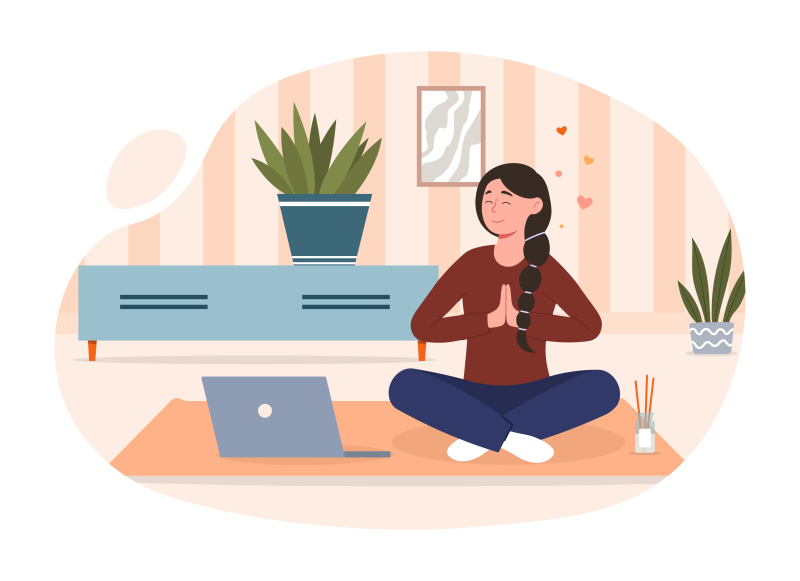
Credit: mentalmind / photogenica.ru
What are some psychological and physical indicators that we are resting properly?
First of all, it’s sleep: we should be going to sleep and waking up easily, as well as wake up energized in the morning. Next is a good mood: we don’t experience anxiety or its physical manifestations, such as tremors. We should be able to think clearly and be capable of doing challenging tasks, we shouldn’t want to put things off. Your state of mind is also generally indicative of your general well-being: if everything triggers us and we don’t want to leave the house, it’s a sign that something isn’t right.
Over the holidays, we tend to eat a lot of tasty food that may not always be healthy. Does our food affect our mood?
Research shows that people with a balanced diet experience less anxiety, depression, and other mental disorders.
As for the typical holiday foods, fast carbs such cakes and sweets typically make us happier in the moment because they trigger the “happiness” hormones in our body, increasing short-term productivity. However, such foods are not very filling, so we’ll soon feel hungry again. It’s better to be reasonable with sweets, switching them at least partially for nuts and fruits.
Other meals on the holiday table make us happier, too, not only because they are tasty but because we eat them with others while chatting around the table.
Sometimes, amid all the festivities, we don’t check in with ourselves and overeat. We wake up the next morning feeling exhausted because our body is using all its energy to process the food. In order to prevent this, only eat in balanced portions and cook only as much food as you can actually eat. You don’t need to make ten salads to put on the table and then stuff yourself with them in the morning because you don’t want them to go bad.
Remember that alcohol is a depressant: though it helps you to relax and lifts your mood in the short term, you will then feel weary and emotionally empty. Not to mention that alcohol has a negative effect on our cognitive functions, which isn’t what you want during your exams or the first work days after the holidays.
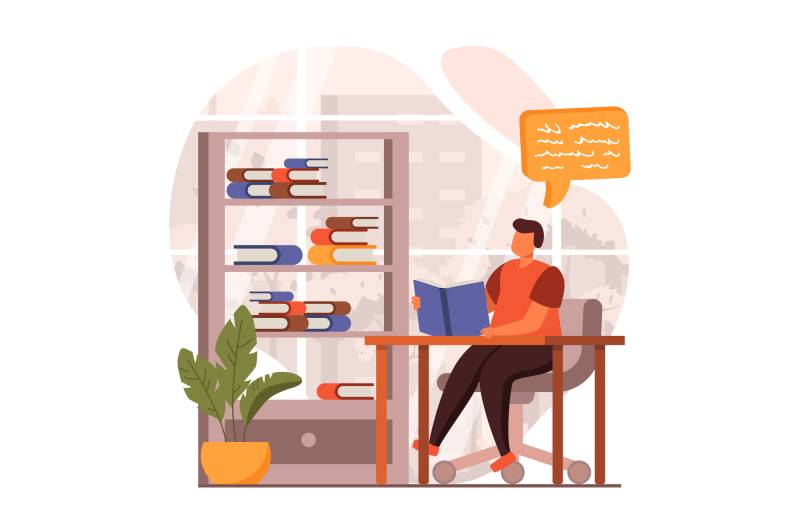
Credit: alexdndz / photogenica.ru
Workaholics often struggle with feeling guilty about resting and, as they see it, “not being useful.” Right after the winter holidays comes the exam period, and thus students will also have trouble accepting the need to take even a short break from studies. How does one calm themselves and deal with this sense of guilt?
This is once again a question of valuing rest. I always say that cars are serviced before they break down. It’s the same with rest – we must help ourselves before we start feeling bad. It’s important to plan periods of work and rest, as well as to observe which time of day and amount of work hours helps you be the most efficient. Then, you leave the rest for rest. After all, overworking doesn’t help you keep up. Instead, we’re likely to spend most of our overtime worrying rather than actually being productive.
It’s best to pick a time for rest and make it “official” for yourself, rather than procrastinate during working hours and blame yourself for not doing anything.
Burnout is now a common issue among the student age group and above. It seems important to identify the “red flags” that would tell you that mere rest isn’t going to cut it and that you should see a specialist. So, what are these flags?
People with burnout experience chronic fatigue and issues with concentration; they also don’t get enough sleep and procrastinate a lot. Often, this results in a vicious circle of anxiety: we worry about not doing anything, but we can’t do anything because of the stress. We also get apathetic, falling into an “emotional coma” in which we don’t feel or want anything, including communication with others. It’s worth paying attention to your physical condition, too – if you get sick a lot, this might well be connected to your mental state.
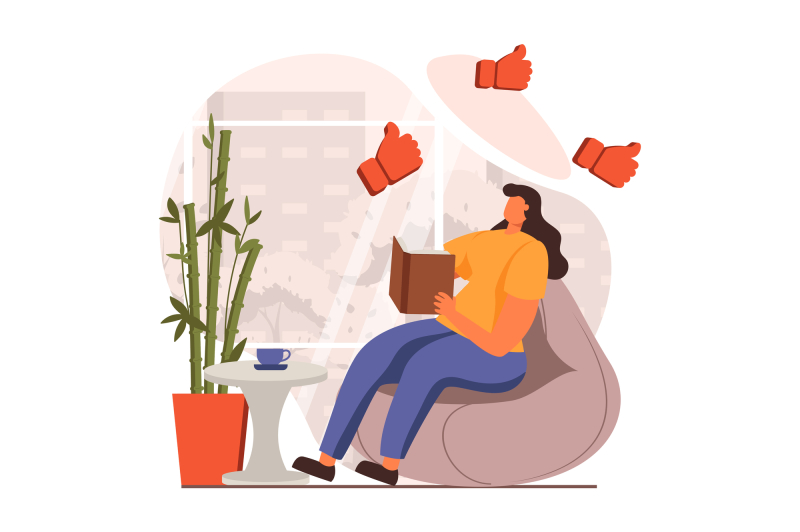
Credit: alexdndz / photogenica.ru
The New Year is a popular time to set new goals and make plans. What goals would you advise our readers to set in terms of restoring and maintaining their mental health?
I would look at these goals as an opportunity to try again: if something didn’t work out this year and you felt bad about it, perhaps next year you can fix that. You can start integrating rest into your schedule and identifying the optimal formula – as in, the amount of physical activity, socializing, and new experiences that you need to have every week and month in order to feel better.
It’s also important to balance your workload: plan your tasks for the day, week, and month, grade them by priority, and split them into sub-tasks to make things easier to tackle.
And finally, the big question: do cat pics and memes really help with stress? :)
Of course! Cute images and videos stimulate the brain areas associated with positive emotions and facilitate the production of serotonin while reducing cortisol, the stress hormone. A study by Japanese scientists has shown that looking at “adorable” content can boost your mood and improve your productivity when it comes to tasks requiring focus. But it’s important not to overdo it: constantly scrolling through your feed can, too, become a kind of addiction.
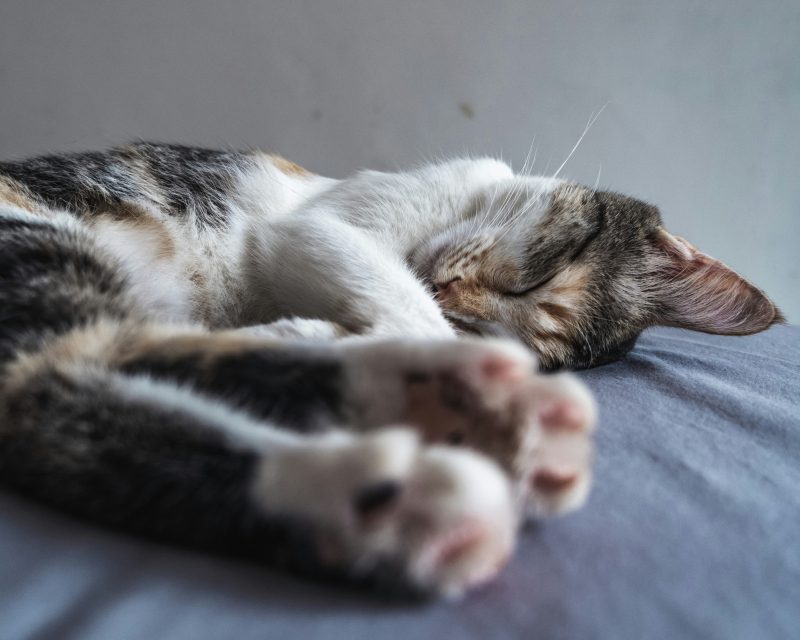
Credit: Dennis van Dalen on Unsplash





